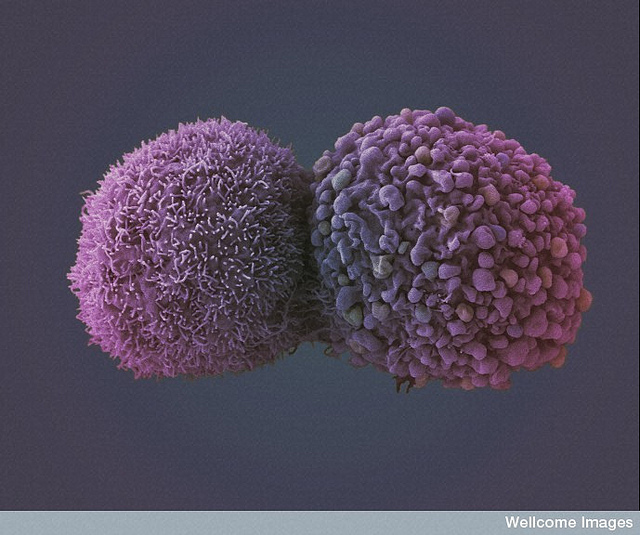Chemotherapy has been used to treat cancer ever since it was first developed in the early 20th century. Despite being one of the most effective cancer treatments, chemotherapy is not exactly perfect. Aside from the fact that it is not always successful, there are many short and long-term side effects that accompany it.
In the search for more effective cancer treatments, a lot of research has been done on nanoparticle-based cancer drugs that target tumors in the body; however, these drugs are very expensive. In an effort to make these nanoparticle-based cancer drugs more affordable, a team of scientists from Australia and Germany modified a diatom algae to be able to mimic the expensive synthetic nanoparticles. According to nanomedicine expert Nico Voelcker, a principle investigator from the University of South Australia, “By genetically engineering diatom algae–tiny, unicellular, photosynthesizing algae with a skeleton made of nanoporous silica, we are able to produce an antibody-binding protein on the surface of their shells.” This type of algae is natural, biocompatible, as well as biodegradable; it only needs water and light to grow and it breaks down naturally. The antibody protein of the surface of the algae specifically binds to cancer cells and then the algae releases its drug contents. Because the drugs are only released when the algae encounters a cancer cell, this ensures the drugs are non-toxic to other non-cancerous cell types.
Image Source: Lester V. Bergman
The team of scientists tested the diatoms on cancer cells in vitro, and these engineered algae ended up destroying approximately 90% of the cancer cells while sparing healthy human cells. In in vivo experiments with mice, these algae reduced tumor growth after a single dose. As a bonus, the mice did not suffer from tissue damage from the experiment, and the algae safely decomposed in their bodies. Professor Voelcker declared that despite its current primitive state, this type of therapy has a lot of potential, and could even successfully treat brain tumors that are currently untreatable.
Feature Image Source: B0007784 Lung cancer cells by Wellcome Images










